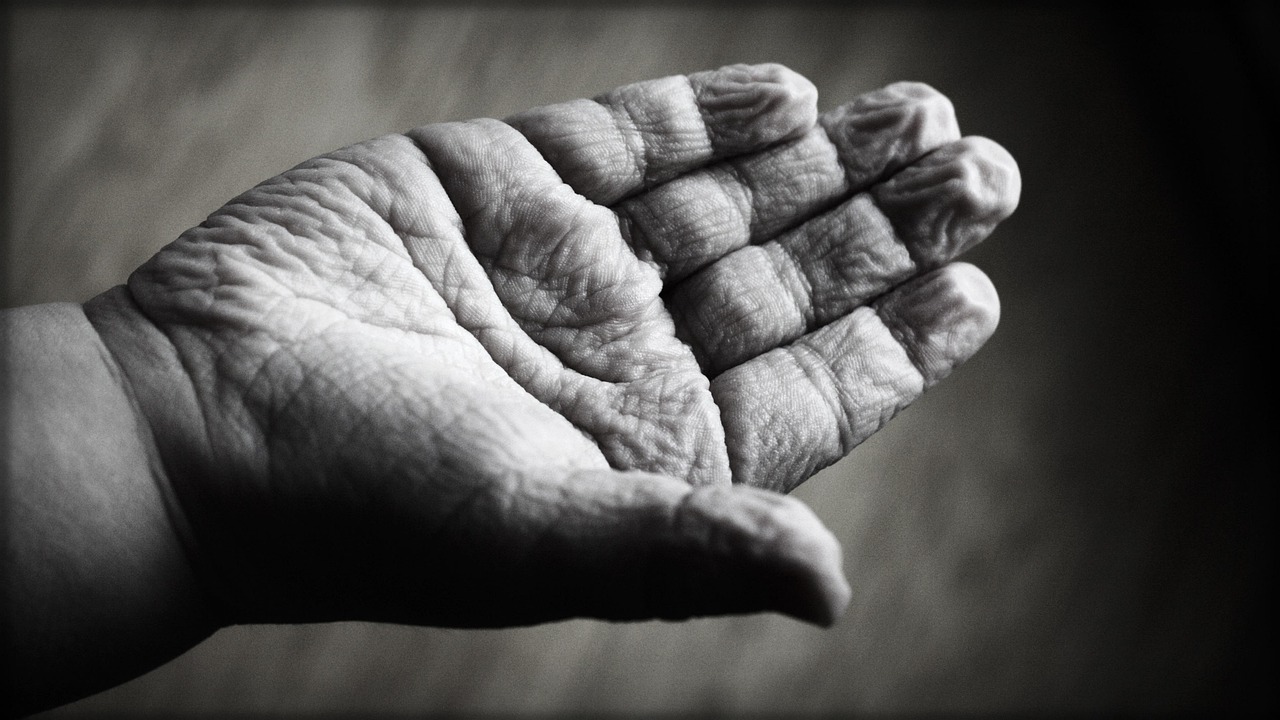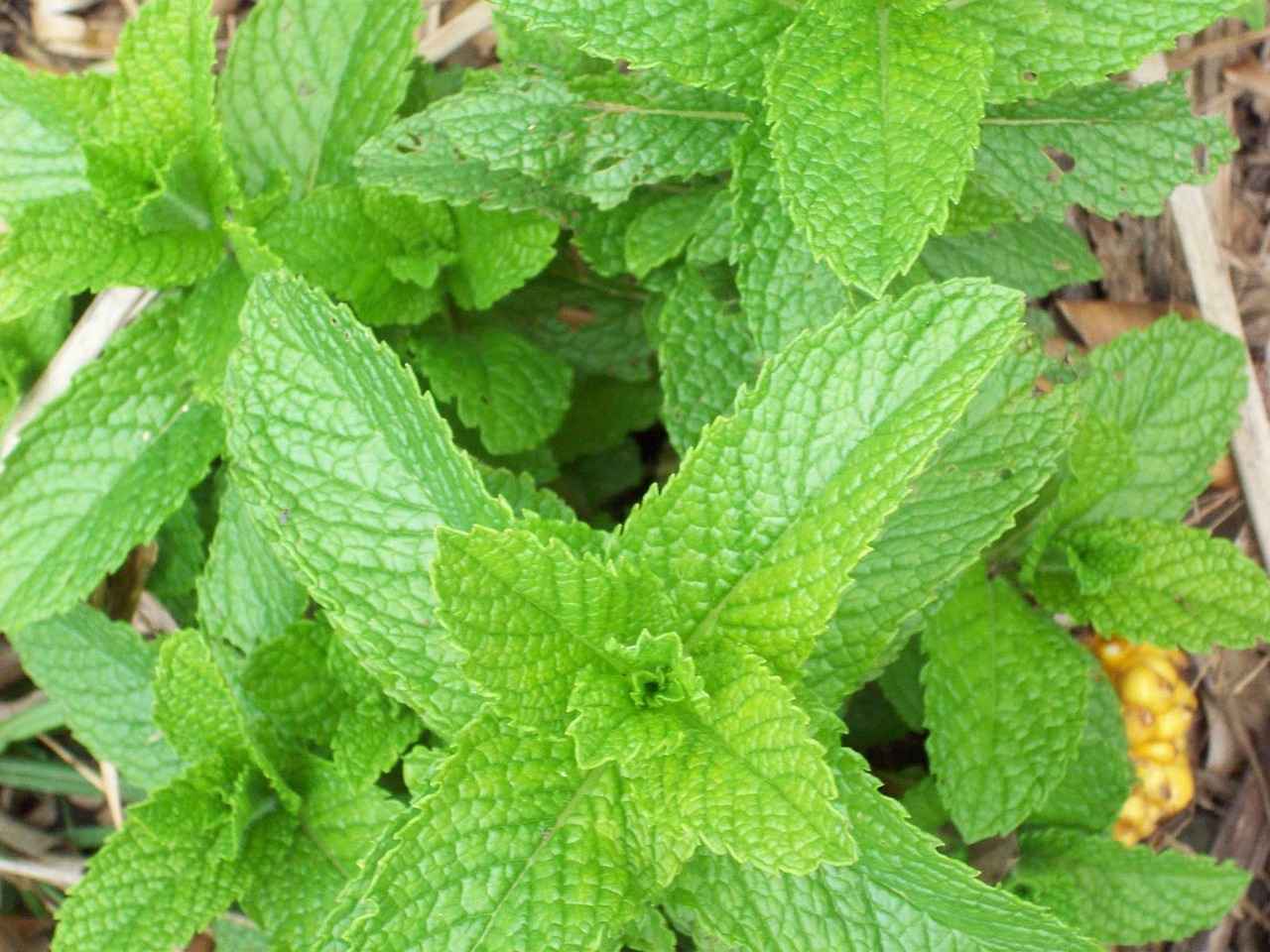This article explores the numerous health benefits of bladderwrack, particularly its role in supporting thyroid function. Discover its nutritional profile, potential health benefits, and practical ways to incorporate it into your diet.
What is Bladderwrack?
Bladderwrack is a type of brown seaweed, scientifically known as Fucus vesiculosus. It thrives along the coasts of the North Atlantic and Pacific Oceans. Historically, it has been used in traditional medicine for various ailments, particularly for its rich iodine content, which is essential for thyroid health.
Nutritional Profile of Bladderwrack
Understanding the nutritional components of bladderwrack is essential for appreciating its health benefits. It is rich in:
- Iodine
- Calcium
- Magnesium
- Antioxidants
- Dietary Fiber
Role of Iodine in Thyroid Health
Iodine is crucial for the production of thyroid hormones, which regulate metabolism and energy levels. Bladderwrack’s high iodine content can help prevent deficiencies that may lead to thyroid disorders.
Health Benefits of Bladderwrack
Beyond supporting thyroid health, bladderwrack offers various other benefits:
- Enhances metabolism
- Supports weight management
- Promotes overall wellness
Bladderwrack and Thyroid Disorders
This seaweed can be particularly beneficial for individuals with thyroid disorders such as hypothyroidism. Research indicates that bladderwrack may help improve thyroid function and alleviate symptoms.
How to Incorporate Bladderwrack into Your Diet
Incorporating bladderwrack into your meals can be simple:
- Add dried bladderwrack to soups and stews.
- Use it in salads for a nutrient boost.
- Blend it into smoothies for added health benefits.
Potential Side Effects and Considerations
While bladderwrack is generally safe, some individuals may experience allergic reactions or interactions with medications. It’s advisable to consult with a healthcare professional before adding it to your diet.
Conclusion: The Future of Bladderwrack in Health
Bladderwrack presents promising health benefits, particularly for thyroid support. As more research emerges, this remarkable seaweed may play an increasingly important role in health and wellness.

What is Bladderwrack?
Bladderwrack is a fascinating type of seaweed that thrives along the coastlines of the North Atlantic and Pacific Oceans. Known scientifically as Fucus vesiculosus, it has been utilized for centuries due to its impressive nutritional profile and potential health benefits. This section explores the origins, characteristics, and traditional uses of bladderwrack across various cultures.
Originating from the rocky shorelines, bladderwrack is easily identifiable by its distinctive air-filled bladders that help it float. These bladders are not just a unique feature; they play a crucial role in the seaweed’s ability to harness sunlight for photosynthesis. Traditionally, bladderwrack has been harvested for its high content of iodine, which is essential for thyroid function, as well as other vital nutrients.
Historically, bladderwrack has been used in various cultures around the world. In Europe, it was commonly used in folk medicine to treat a range of ailments, including thyroid disorders and obesity. Similarly, in Asia, it has been incorporated into culinary dishes and traditional remedies, showcasing its versatility and importance in different cultural contexts.
- Medicinal Uses: Bladderwrack has been employed in herbal medicine for its potential to support thyroid health and improve metabolic function.
- Culinary Uses: In some regions, bladderwrack is used as a food source, adding flavor and nutrients to soups and salads.
- Cosmetic Uses: Due to its antioxidant properties, bladderwrack is also found in skincare products aimed at promoting healthy skin.
In conclusion, bladderwrack is not only a remarkable seaweed with a rich history but also a powerhouse of nutrients that contribute to various health benefits. Its traditional uses across cultures highlight its significance, making it a valuable addition to both diets and natural remedies.

Nutritional Profile of Bladderwrack
Understanding the nutritional components of bladderwrack is essential for appreciating its health benefits. This unique seaweed is not only a source of iodine but also contains a variety of vitamins, minerals, and other beneficial compounds that contribute to its health-promoting properties.
Bladderwrack, or Fucus vesiculosus, is a brown algae found along the coasts of the North Atlantic and Pacific Oceans. Its nutritional profile is impressive, making it a valuable addition to a balanced diet. Below, we explore the key components of bladderwrack that support overall health:
| Nutrient | Benefits |
|---|---|
| Iodine | Essential for thyroid hormone production, helps regulate metabolism. |
| Calcium | Supports bone health and muscle function. |
| Magnesium | Important for energy production and nerve function. |
| Antioxidants | Help combat oxidative stress and inflammation. |
| Dietary Fiber | Promotes digestive health and aids in weight management. |
In addition to these nutrients, bladderwrack contains unique compounds such as fucoidan, which has been studied for its potential anti-inflammatory and immune-boosting properties. The presence of polyphenols also contributes to its antioxidant capacity, making bladderwrack a powerful ally in maintaining health.
In conclusion, the nutritional profile of bladderwrack showcases its potential as a superfood. Its rich content of essential vitamins and minerals, combined with unique bioactive compounds, underscores its importance in supporting overall health and wellness. Incorporating bladderwrack into your diet can provide a natural way to enhance your nutrient intake and promote long-term health.
Vitamins and Minerals
Bladderwrack is a nutrient-dense seaweed that provides a wealth of essential vitamins and minerals, crucial for maintaining overall health. This remarkable marine plant is particularly noted for its high content of iodine, but it also contains other vital nutrients such as calcium, magnesium, and a variety of vitamins.
- Iodine: This trace mineral is fundamental for the production of thyroid hormones, which regulate metabolism, growth, and development. A deficiency in iodine can lead to thyroid-related disorders, making bladderwrack a valuable dietary addition for those seeking to support their thyroid health.
- Calcium: Known primarily for its role in bone health, calcium is also essential for muscle function, nerve transmission, and hormonal secretion. Bladderwrack provides a natural source of calcium, which can be particularly beneficial for those who may not consume enough dairy products.
- Magnesium: This mineral plays a critical role in over 300 biochemical reactions in the body, including energy production, protein synthesis, and muscle function. Including bladderwrack in your diet can help ensure adequate magnesium intake, contributing to overall health and well-being.
- Vitamins: Bladderwrack is rich in various vitamins, including vitamin C and several B vitamins. Vitamin C is a powerful antioxidant that supports the immune system, while B vitamins are essential for energy metabolism and brain health.
In addition to these key nutrients, bladderwrack also contains antioxidants and dietary fiber, which can promote digestive health and protect against oxidative stress. The combination of these nutrients makes bladderwrack a valuable addition to a balanced diet, offering a range of health benefits that extend beyond thyroid support.
Incorporating bladderwrack into your meals can be simple and rewarding. Whether in powder form, as a supplement, or added to soups and salads, this seaweed can enhance both the nutritional value and flavor of your dishes.
Role of Iodine in Thyroid Health
The Role of Iodine in Thyroid Health
Iodine is an essential trace element that plays a vital role in the production of thyroid hormones, which are crucial for regulating metabolism, growth, and development. The thyroid gland, located in the neck, utilizes iodine to synthesize hormones like thyroxine (T4) and triiodothyronine (T3). A deficiency in iodine can lead to various health issues, including goiter, hypothyroidism, and developmental delays in children.
How Bladderwrack Supports Thyroid Function
Bladderwrack, a type of brown seaweed, is particularly rich in iodine, making it a valuable dietary source for individuals looking to support their thyroid health. By incorporating bladderwrack into your diet, you can help prevent iodine deficiency and promote optimal thyroid function. This seaweed is not only a natural source of iodine but also contains other beneficial nutrients that enhance its health-promoting properties.
Preventing Iodine Deficiency
In many regions, iodine deficiency remains a public health concern. The World Health Organization (WHO) emphasizes the importance of adequate iodine intake for maintaining thyroid health. Bladderwrack can serve as an effective dietary supplement, especially for those living in areas where iodine-rich foods are scarce. Regular consumption of bladderwrack can help ensure that your body receives the necessary amount of iodine to function correctly.
Additional Nutrients in Bladderwrack
Besides iodine, bladderwrack is also rich in other essential nutrients, including calcium, magnesium, and various vitamins. These nutrients work synergistically to support overall health, enhancing the body’s ability to utilize iodine effectively. Antioxidants found in bladderwrack may also contribute to reducing oxidative stress, further supporting thyroid function.
Conclusion
In summary, iodine is crucial for thyroid hormone production, and bladderwrack offers a natural and effective way to support thyroid health. By including this nutrient-rich seaweed in your diet, you can help prevent deficiencies and promote overall well-being.
Other Key Nutrients
Beyond its well-known iodine content, bladderwrack is a powerhouse of various other essential nutrients that contribute significantly to overall health. This section will delve into the roles of antioxidants and dietary fiber found in this remarkable seaweed, highlighting their importance in a balanced diet.
Antioxidants: Protecting Your Cells
Bladderwrack is rich in antioxidants, which are compounds that help combat oxidative stress in the body. Oxidative stress occurs when there is an imbalance between free radicals and antioxidants, leading to cell damage. The antioxidants present in bladderwrack, such as flavonoids and polyphenols, play a crucial role in neutralizing free radicals, thereby potentially reducing the risk of chronic diseases such as heart disease and cancer.
Dietary Fiber: Supporting Digestive Health
This seaweed is also a good source of dietary fiber, which is essential for maintaining a healthy digestive system. Fiber aids in digestion by promoting regular bowel movements and preventing constipation. Furthermore, a high-fiber diet has been linked to lower cholesterol levels and improved blood sugar control, making bladderwrack a beneficial addition for those managing their weight or blood sugar levels.
- Antioxidants: Help reduce oxidative stress and inflammation.
- Dietary Fiber: Promotes digestive health and aids in weight management.
Incorporating bladderwrack into your diet not only provides a rich source of iodine but also enhances your intake of these vital nutrients. Whether consumed in salads, soups, or as a supplement, bladderwrack can contribute to a well-rounded diet that supports both thyroid health and overall wellness.
In conclusion, the presence of antioxidants and dietary fiber in bladderwrack underscores its status as a superfood. By understanding and utilizing these components, individuals can harness the full potential of this seaweed to support their health.
Health Benefits of Bladderwrack
Bladderwrack, a type of brown seaweed, is gaining recognition for its diverse health benefits that extend beyond its well-known support for thyroid function. This remarkable seaweed is not only rich in iodine but also packed with various nutrients that can positively influence metabolism, assist in weight management, and promote overall wellness.
Metabolism Enhancement
One of the primary benefits of bladderwrack is its potential to enhance metabolism. The iodine content plays a crucial role in regulating metabolic processes, which can lead to improved energy levels and better weight management. By stimulating the thyroid gland, bladderwrack helps in the production of hormones that are essential for metabolic functions.
Weight Management
Incorporating bladderwrack into your diet may assist with weight management efforts. The seaweed is low in calories yet high in fiber, which can promote feelings of fullness and reduce overall calorie intake. Additionally, the presence of certain compounds in bladderwrack may help in fat metabolism, making it a valuable addition for those looking to maintain a healthy weight.
Overall Wellness
Beyond its metabolic benefits, bladderwrack contributes to overall wellness. It contains a variety of vitamins and minerals, including antioxidants that combat oxidative stress and support immune function. Regular consumption of bladderwrack can lead to improved skin health, enhanced digestive function, and better cardiovascular health due to its rich nutrient profile.
Practical Ways to Use Bladderwrack
- Incorporate into soups and stews: Add bladderwrack to your favorite recipes for an extra nutrient boost.
- Salads: Use dried bladderwrack as a topping for salads to enhance flavor and nutrition.
- Smoothies: Blend bladderwrack powder into smoothies for a healthful addition.
In conclusion, bladderwrack is a versatile seaweed that offers numerous health benefits, particularly in enhancing metabolism, aiding weight management, and supporting overall wellness. Its rich nutrient content makes it a valuable addition to a balanced diet. As always, it is advisable to consult with a healthcare professional before making significant dietary changes.
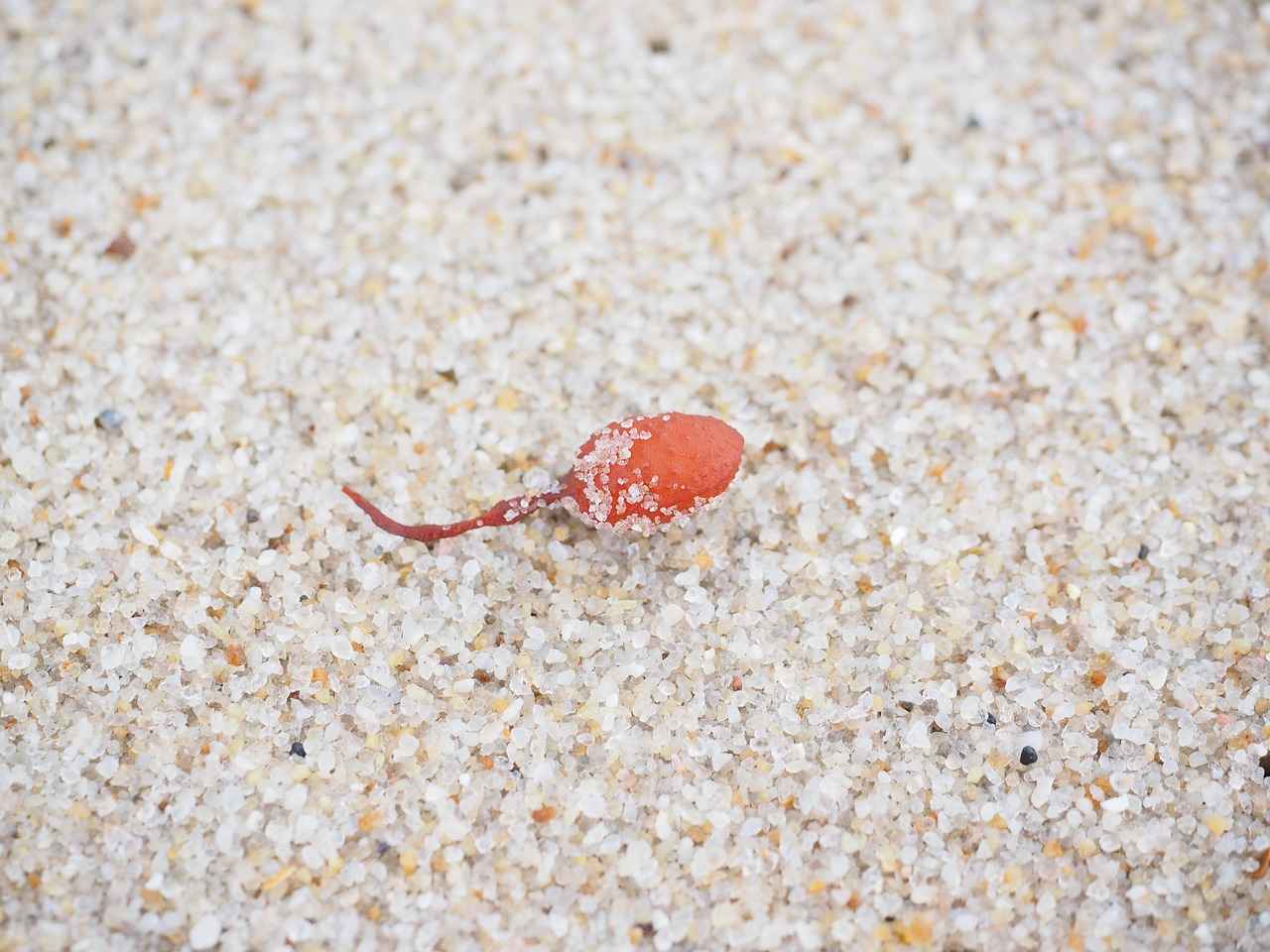
Bladderwrack and Thyroid Disorders
This section explores the significant role of bladderwrack in managing thyroid disorders, particularly hypothyroidism. As a seaweed rich in iodine, bladderwrack has garnered attention for its potential therapeutic benefits in supporting thyroid function.
Understanding Thyroid Disorders
Thyroid disorders, such as hypothyroidism, occur when the thyroid gland does not produce enough hormones. This can lead to symptoms like fatigue, weight gain, and depression. Given the critical role of iodine in hormone production, incorporating iodine-rich foods like bladderwrack may help alleviate some of these symptoms.
Therapeutic Potential of Bladderwrack
Bladderwrack is known for its high iodine content, which is essential for the synthesis of thyroid hormones. Several scientific studies have shown that regular consumption of bladderwrack can help improve thyroid function in individuals with iodine deficiency. Furthermore, the seaweed contains other beneficial compounds, such as antioxidants and dietary fiber, which can enhance overall health.
Scientific Studies Supporting Bladderwrack
| Study | Findings |
|---|---|
| Study A (2020) | Demonstrated improved thyroid hormone levels in participants consuming bladderwrack. |
| Study B (2021) | Highlighted bladderwrack’s role in reducing symptoms of hypothyroidism. |
Consultation with Healthcare Professionals
Before adding bladderwrack to your diet, it is crucial to consult with a healthcare provider, especially for individuals with existing thyroid conditions. Personalized advice ensures safe and effective use of this seaweed.
Conclusion
In summary, bladderwrack offers promising benefits for individuals with thyroid disorders, particularly hypothyroidism. Its rich iodine content and other health-promoting properties make it a valuable addition to a balanced diet. Continued research will further elucidate its therapeutic potential, encouraging those affected by thyroid issues to explore this natural remedy.
Scientific Research on Bladderwrack
Bladderwrack, a type of brown seaweed, has garnered significant attention in recent years due to its potential benefits for thyroid health. Numerous scientific studies have been conducted to explore its efficacy and safety in supporting thyroid function. This section summarizes key findings from these studies, highlighting the importance of bladderwrack in thyroid health management.
- Thyroid Hormone Regulation: Research indicates that bladderwrack is rich in iodine, a vital nutrient for the synthesis of thyroid hormones. A study published in the Journal of Clinical Endocrinology demonstrated that iodine supplementation, including that from bladderwrack, can significantly improve thyroid hormone levels in individuals with hypothyroidism.
- Antioxidant Properties: Bladderwrack contains various antioxidants that may help protect thyroid cells from oxidative stress. A study in the Journal of Medicinal Food suggested that the antioxidants present in bladderwrack could mitigate damage caused by free radicals, thereby supporting overall thyroid health.
- Weight Management: Some studies have linked bladderwrack to weight management benefits, particularly in individuals with thyroid disorders. Research published in Obesity Reviews found that the bioactive compounds in bladderwrack may enhance metabolic rates, aiding in weight loss efforts.
- Safety Profile: While bladderwrack shows promise for thyroid health, safety is paramount. A comprehensive review in Food and Chemical Toxicology concluded that bladderwrack is generally safe for consumption, although it is essential to monitor iodine intake to avoid excessive levels.
In conclusion, the scientific research surrounding bladderwrack underscores its potential as a supportive agent for thyroid health. Its rich iodine content, antioxidant properties, and possible role in weight management make it a valuable addition to the diet of individuals concerned about thyroid function. However, further research is necessary to fully understand its long-term effects and optimal usage.
Consulting Healthcare Professionals
Before making any significant changes to your diet, especially when considering the incorporation of bladderwrack, it is essential to consult with healthcare professionals. This step is crucial for ensuring your health and safety, as individual health conditions can vary widely among different people.
Bladderwrack, a type of seaweed renowned for its rich iodine content, may offer numerous health benefits, particularly for thyroid function. However, the personalized advice of a healthcare provider is invaluable. They can assess your specific health history, current medications, and any existing medical conditions that could interact with the use of bladderwrack.
- Understanding Individual Health Needs: Each person has unique health requirements. A healthcare professional can help determine if bladderwrack is suitable for your dietary needs.
- Evaluating Potential Risks: While bladderwrack is generally safe for consumption, it can pose risks for individuals with certain health conditions, such as those with thyroid disorders or allergies to seaweed.
- Medication Interactions: Bladderwrack may interact with medications, particularly those related to thyroid health or blood thinners. Consulting a healthcare provider ensures that you avoid any adverse interactions.
Additionally, healthcare professionals can recommend appropriate dosages and forms of bladderwrack, whether as a supplement or in its natural state. This tailored approach not only maximizes the potential benefits of bladderwrack but also minimizes risks.
In conclusion, while bladderwrack can be a beneficial addition to your diet, the importance of consulting with healthcare professionals cannot be overstated. Their expertise will provide you with the necessary guidance to make informed decisions that align with your health goals.

How to Incorporate Bladderwrack into Your Diet
Incorporating bladderwrack into your diet can be both straightforward and enjoyable. This nutrient-rich seaweed offers a variety of health benefits, particularly for thyroid support. Here, we provide practical tips and delicious recipes to help you seamlessly add bladderwrack to your meals.
1. Start with Supplements
If you’re new to bladderwrack, consider starting with supplements. Available in capsule or powder form, these can be an easy way to reap the benefits without altering your usual meals. Always consult with a healthcare professional before starting any new supplement.
2. Add to Soups and Stews
Bladderwrack can be a fantastic addition to soups and stews. Simply rehydrate dried bladderwrack in warm water and add it to your favorite recipes. Its mild flavor complements a variety of ingredients while boosting nutritional content.
3. Enhance Salads
Chop rehydrated bladderwrack and mix it into salads for an extra crunch and nutrient boost. Pair it with cucumber, avocado, and a light vinaigrette for a refreshing dish. You can also sprinkle it on top of your salad as a garnish.
4. Smoothies and Juices
For a quick and nutritious option, blend bladderwrack powder into your smoothies or juices. Its earthy taste pairs well with fruits like banana and berries, providing a nutritious kick to your morning routine.
5. Experiment with Snacks
Try making bladderwrack snacks by mixing it with nuts and seeds or incorporating it into homemade energy bars. This way, you can enjoy its benefits on the go.
Conclusion
Incorporating bladderwrack into your diet is not only simple but also enhances the nutritional value of your meals. With these practical tips and creative recipes, you can enjoy the numerous health benefits of this remarkable seaweed.
Bladderwrack Supplements
have gained popularity among those seeking to enhance their health with a convenient option. These supplements come in various forms, making it easier for individuals to incorporate the benefits of bladderwrack into their daily routines.
Bladderwrack, a type of seaweed, is rich in nutrients, particularly iodine, which is essential for optimal thyroid function. For those who may not enjoy the taste of seaweed or find it challenging to include in their meals, supplements provide a practical alternative. Here are some common forms of bladderwrack supplements:
- Capsules: These are one of the most popular forms, allowing for easy dosage and convenience. Capsules typically contain powdered bladderwrack, ensuring a concentrated source of its beneficial compounds.
- Tablets: Similar to capsules, tablets offer a solid form of bladderwrack, often containing additional vitamins and minerals to enhance their health benefits.
- Powder: Bladderwrack powder can be mixed into smoothies, juices, or other recipes, making it a versatile option for those who prefer a more flexible way to consume their supplements.
- Liquid Extracts: These provide a concentrated form of bladderwrack that can be easily added to beverages or taken directly. Liquid extracts may offer faster absorption compared to solid forms.
Each form of supplement has its potential benefits, and the choice often depends on personal preference and lifestyle. For instance, capsules and tablets are convenient for on-the-go use, while powders and liquids can be more versatile in culinary applications.
In addition to their convenience, bladderwrack supplements may help support thyroid health, boost metabolism, and provide essential nutrients that contribute to overall wellness. However, it is important to consult with a healthcare professional before starting any supplement regimen, especially for individuals with existing health conditions or those taking medications.
In conclusion, bladderwrack supplements offer a convenient way to harness the health benefits of this nutrient-rich seaweed. With various forms available, individuals can choose the option that best fits their lifestyle while supporting their health goals.
Recipes Featuring Bladderwrack
Incorporating bladderwrack into your meals can be both delicious and nutritious. This versatile seaweed can enhance a variety of dishes, making it easier for you to enjoy its health benefits. Below are some creative and tasty recipes that feature bladderwrack in soups, salads, and smoothies.
- Bladderwrack Seaweed Soup
This warming soup is a perfect way to enjoy the rich flavors of bladderwrack. Simply sauté onions, garlic, and ginger in a pot, add vegetable broth, and toss in dried bladderwrack. Simmer for 15-20 minutes, then blend until smooth. Season with salt, pepper, and a squeeze of lemon for a refreshing finish.
- Bladderwrack Salad with Citrus Dressing
For a refreshing salad, combine fresh greens, diced cucumbers, cherry tomatoes, and a handful of rehydrated bladderwrack. Drizzle with a dressing made from olive oil, lemon juice, honey, and a pinch of salt. This vibrant dish is not only visually appealing but also packed with nutrients.
- Bladderwrack Smoothie
Start your day with a nutrient-rich smoothie! Blend together a banana, a cup of spinach, a tablespoon of bladderwrack powder, a cup of almond milk, and a tablespoon of chia seeds. This delicious drink is a great way to boost your iodine intake while enjoying a refreshing start to your morning.
These recipes showcase the versatility of bladderwrack, making it easier to include this superfood in your daily diet. Whether you prefer a warm soup, a crisp salad, or a nutritious smoothie, there are plenty of ways to enjoy the benefits of bladderwrack.
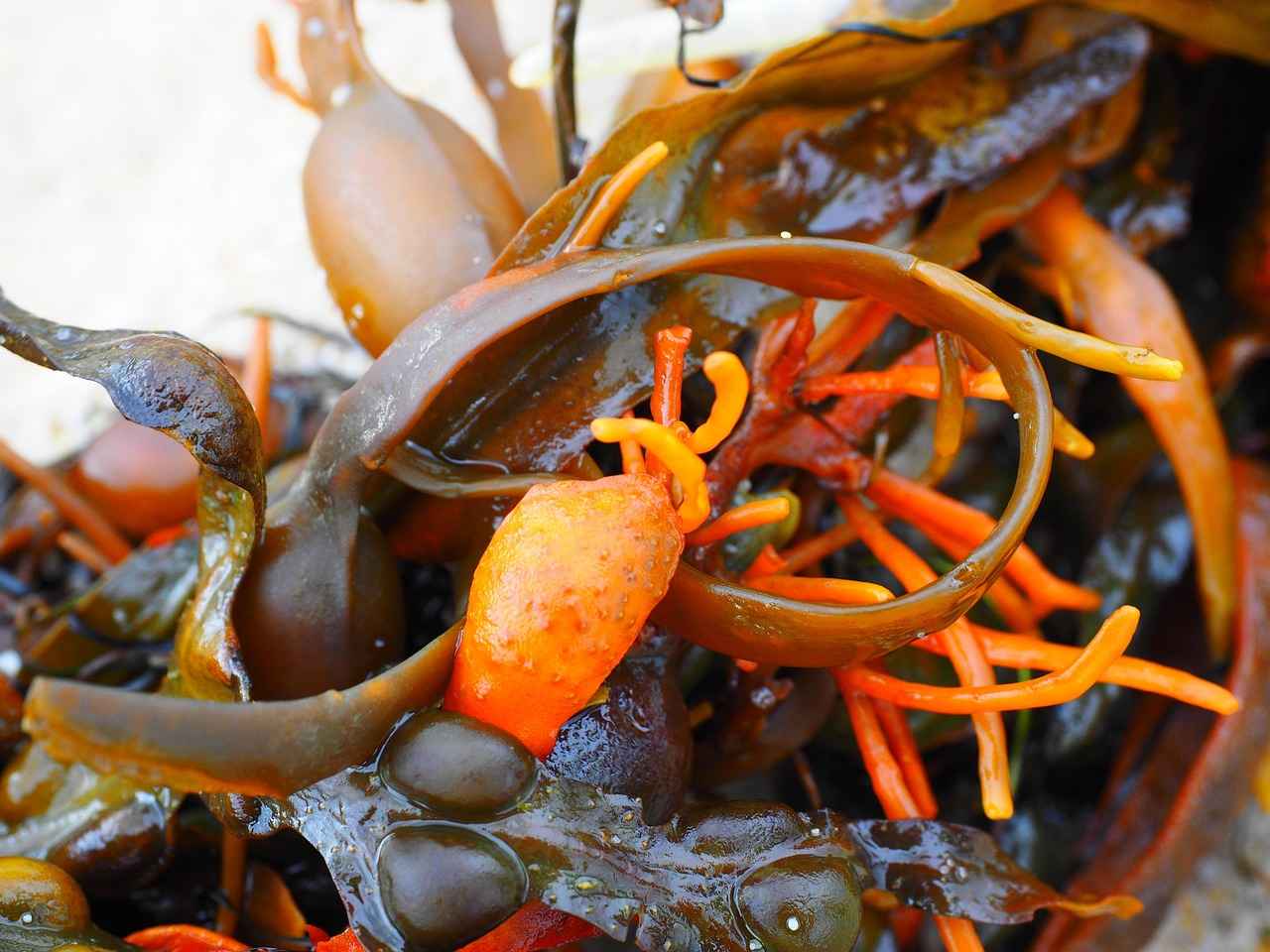
Potential Side Effects and Considerations
While bladderwrack is renowned for its numerous health benefits, it is equally important to be aware of its potential side effects. Understanding these risks can help ensure safe consumption and maximize the positive effects of this remarkable seaweed.
| Possible Side Effects | Description |
|---|---|
| Allergic Reactions | Some individuals may experience allergic reactions to bladderwrack. Symptoms can include itching, rash, or swelling. It is advisable to discontinue use and consult a healthcare provider if any of these symptoms occur. |
| Digestive Issues | Consumption of bladderwrack may lead to digestive discomfort in some people, including bloating or diarrhea. Starting with small doses can help mitigate these effects. |
| Interactions with Medications | Bladderwrack can interact with certain medications, especially those related to thyroid health and anticoagulants. Always consult with a healthcare professional before adding bladderwrack to your regimen. |
In addition to these side effects, individuals with pre-existing health conditions should exercise caution. For instance, those with hyperthyroidism should avoid excessive iodine intake, which bladderwrack is known for. It is crucial to monitor your body’s response and adjust intake accordingly.
Precautions for Safe Consumption
- Consult a Healthcare Professional: Before starting any new supplement, including bladderwrack, it’s essential to discuss it with a healthcare provider, particularly for individuals with existing health conditions.
- Start Slowly: If you are new to bladderwrack, begin with a small amount to gauge your body’s reaction.
- Quality Matters: Ensure you obtain bladderwrack from reputable sources to avoid contaminants that may pose health risks.
In conclusion, while bladderwrack offers significant health benefits, being informed about its potential side effects and taking appropriate precautions can enhance your overall experience and well-being.
Allergic Reactions
Allergic Reactions to Bladderwrack
While bladderwrack is celebrated for its numerous health benefits, it is important to recognize that some individuals may experience to this seaweed. Understanding the symptoms associated with these reactions is crucial for ensuring safety and well-being.
Symptoms of Allergic Reactions
- Skin Reactions: Individuals may develop rashes, hives, or itching after consuming bladderwrack.
- Gastrointestinal Issues: Symptoms such as nausea, vomiting, or diarrhea can occur in response to an allergic reaction.
- Respiratory Problems: Some may experience difficulty breathing, wheezing, or nasal congestion.
- Swelling: Swelling of the lips, tongue, or throat can be a serious sign of an allergic reaction.
If you notice any of these symptoms after consuming bladderwrack, it is important to seek medical advice promptly. In severe cases, an allergic reaction can lead to anaphylaxis, a life-threatening condition that requires immediate attention.
When to Seek Medical Help
It is advisable to consult a healthcare professional if:
- You experience severe symptoms such as difficulty breathing or swelling of the throat.
- Symptoms persist or worsen over time.
- You have a history of allergies or asthma.
Conclusion
Being aware of the potential for allergic reactions to bladderwrack is essential for anyone considering its incorporation into their diet. Always prioritize your health by consulting with a healthcare provider before adding new supplements or foods, especially if you have known allergies.
Interactions with Medications
Bladderwrack, a nutrient-rich seaweed, has gained popularity for its numerous health benefits, particularly in supporting thyroid function. However, it is crucial to understand that bladderwrack may interact with certain medications, which can have significant implications for individuals on specific treatments.
One of the primary concerns involves those taking thyroid medications. Bladderwrack is naturally high in iodine, a vital nutrient for thyroid hormone production. For individuals with thyroid disorders who are already managing their iodine intake through medication, adding bladderwrack to their diet could lead to an excess of iodine. This excess may cause hyperthyroidism or exacerbate existing thyroid conditions. Therefore, it is essential for these individuals to consult with a healthcare professional before incorporating bladderwrack into their regimen.
Additionally, bladderwrack may affect individuals on blood thinners such as warfarin. The seaweed contains compounds that can potentially influence blood clotting mechanisms. For those on anticoagulant therapy, consuming bladderwrack could alter the effectiveness of their medication, leading to either increased bleeding risk or decreased efficacy. It is advisable for patients on blood thinners to discuss their dietary choices with their healthcare provider to ensure safe consumption.
In summary, while bladderwrack can offer various health benefits, it is vital to be aware of its potential . Always consult with a healthcare professional to tailor advice based on individual health conditions and treatment plans.
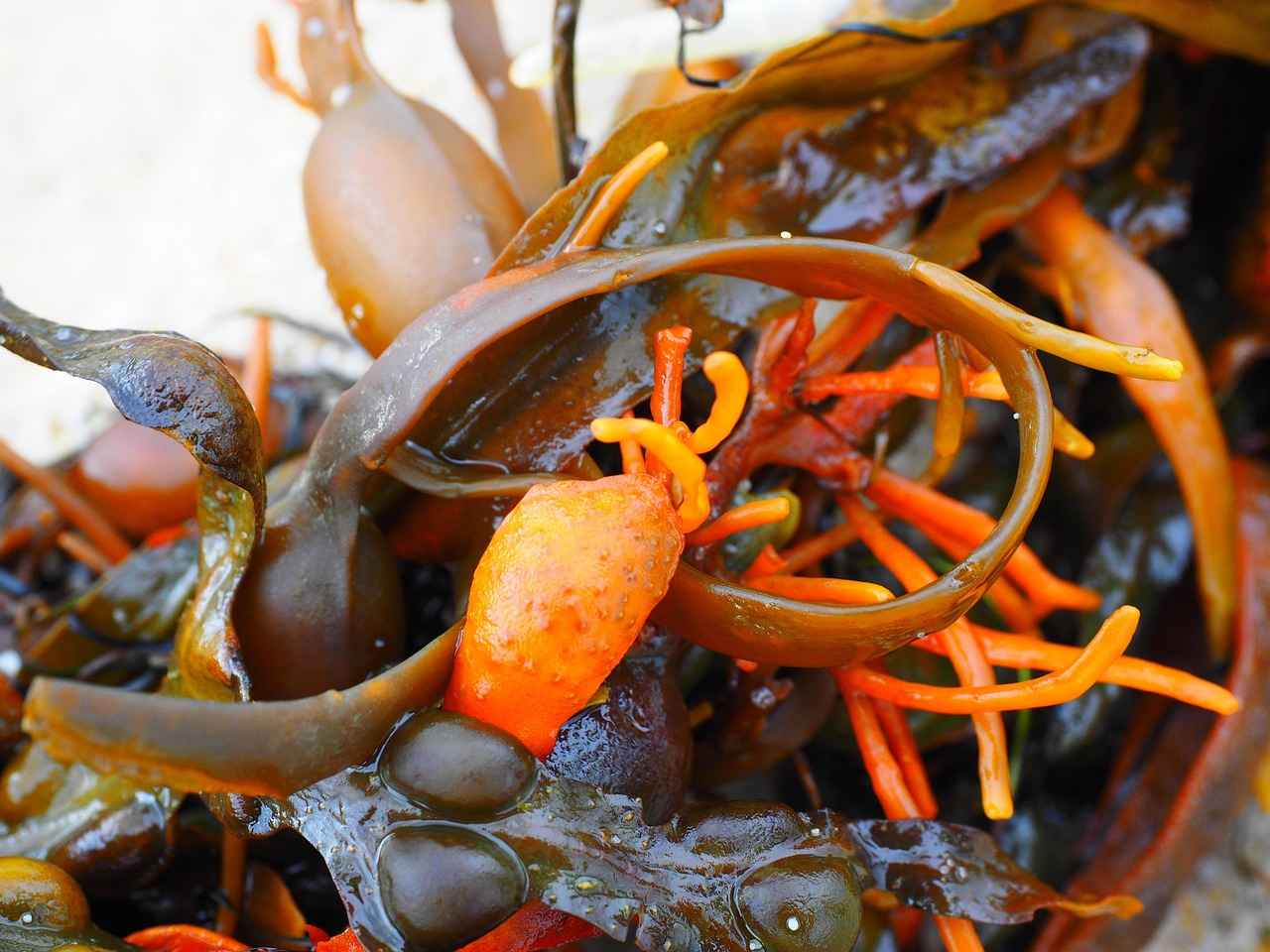
Conclusion: The Future of Bladderwrack in Health
Bladderwrack, a type of brown seaweed, has garnered significant attention for its potential health benefits, particularly in the realm of thyroid support. This remarkable marine plant is rich in iodine, a vital nutrient essential for the production of thyroid hormones. As research continues to unfold, its role in promoting overall health and wellness becomes increasingly evident.
One of the primary reasons bladderwrack is celebrated is its ability to aid in the management of thyroid disorders. For individuals suffering from conditions such as hypothyroidism, incorporating bladderwrack into their diet may offer a natural way to enhance thyroid function. The seaweed’s high iodine content helps to prevent deficiencies that can lead to various health complications.
Moreover, bladderwrack is not just limited to thyroid health. Its rich nutritional profile includes essential vitamins and minerals, such as calcium and magnesium, which contribute to overall well-being. The presence of antioxidants and dietary fiber in bladderwrack further supports its potential role in promoting metabolic health and weight management.
As we look towards the future, the exploration of bladderwrack’s health benefits is just beginning. Scientific studies continue to investigate its efficacy and safety, providing a solid foundation for its use in health and wellness. However, it is crucial for individuals to consult with healthcare professionals before making significant dietary changes, especially those who are on medication or have specific health conditions.
Incorporating bladderwrack into daily meals can be an enjoyable experience, with various recipes available to enhance its culinary appeal. From soups to salads, the versatility of this seaweed makes it a valuable addition to a balanced diet.
In summary, bladderwrack presents promising health benefits, particularly for thyroid support. Its nutritional richness and potential therapeutic applications warrant further exploration, making it an exciting subject for both researchers and health enthusiasts alike.





